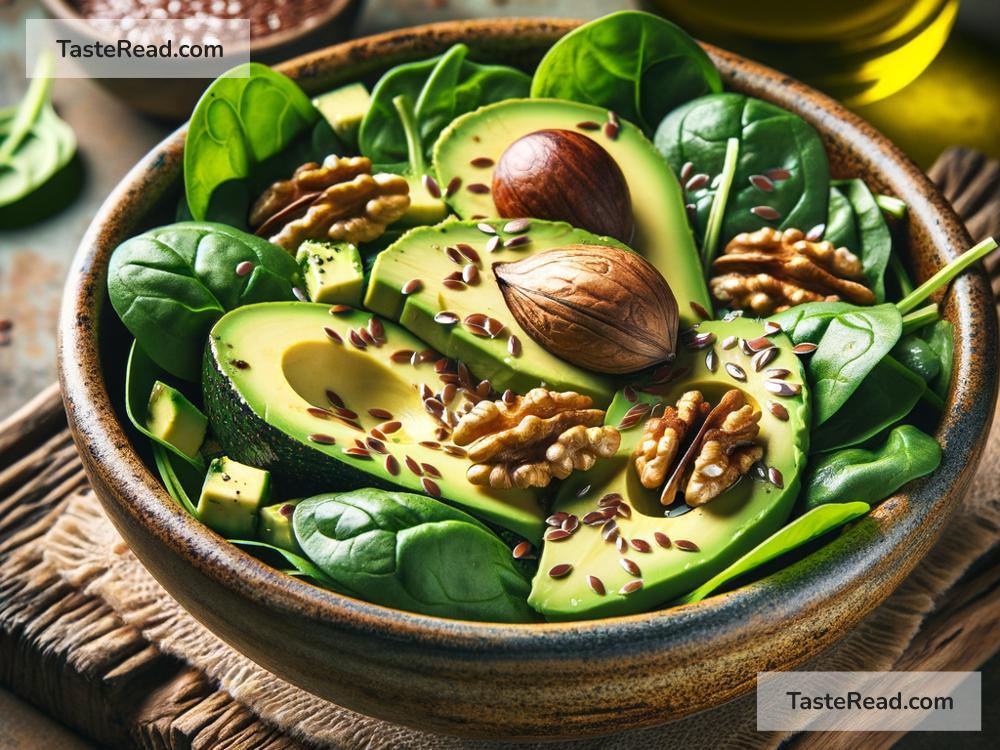Foods That Promote Synovial Fluid Health: Keeping Your Joints Happy
Most of us take moving our arms, walking, or bending for granted, but these simple actions are made possible by a key component: synovial fluid. Synovial fluid is the slippery substance found in your joints that acts like a lubricant, reducing friction and cushioning your bones during movement. If your synovial fluid isn’t healthy, your joints may feel stiff or ache, making day-to-day activities uncomfortable.
Fortunately, the foods you eat can play a big role in supporting synovial fluid health and keeping your joints flexible and strong. Let’s dive into an overview of how diet impacts synovial fluid and explore some delicious, joint-friendly foods.
Understanding Synovial Fluid and Joint Health
Synovial fluid is produced by the synovial membranes, which line your joints. It contains two key components: hyaluronic acid and lubricin. Hyaluronic acid helps retain moisture, while lubricin reduces friction between joint surfaces. When synovial fluid is abundant and healthy, your joints glide smoothly and painlessly. However, factors like aging, injury, or inflammation can diminish this fluid, making movements stiff and uncomfortable.
One way to maintain synovial fluid health is to eat foods that support hydration, fight inflammation, and promote the production of hyaluronic acid and other essential compounds. Below are foods proven to be good for your joint health and synovial fluid.
Foods That Promote Synovial Fluid Health
-
Water-Rich Foods
Synovial fluid is largely made up of water, so staying hydrated is essential. While drinking plenty of water is obvious advice, eating water-rich foods can help too. Fruits like watermelon, cucumbers, and oranges contain high levels of water and electrolytes, which hydrate your joints and aid synovial fluid production. -
Omega-3 Fatty Acid-Rich Foods
Omega-3 fatty acids are famous for fighting inflammation, which can damage synovial fluid and the joints. Foods like salmon, mackerel, sardines, and flaxseeds are excellent sources of omega-3s. Other options include walnuts and chia seeds. Regularly consuming these foods can reduce joint stiffness and keep your synovial fluid healthy and functional. -
Bone Broth
If you’re looking for a food that supports synovial fluid holistically, bone broth is a fantastic option. It is packed with nutrients like collagen, glucosamine, and chondroitin, which strengthen cartilage and improve lubrication in the joints. Bone broth also contains minerals such as magnesium, calcium, and phosphorus, crucial for joint health. -
Avocados
Avocados are rich in monounsaturated fats and Vitamin E, both of which have anti-inflammatory properties. Vitamin E may also protect the membranes surrounding your joints, ensuring your synovial fluid stays intact and functional. The creamy texture and versatility of avocados make them a great addition to salads, smoothies, or as a healthy toast topping. -
Leafy Greens
Spinach, kale, and other leafy greens are nutritional powerhouses packed with antioxidants like Vitamin C and beta-carotene that combat oxidative stress in the body. Oxidative stress can damage synovial fluid, so adding greens to your diet is a proactive way to protect your joints. Greens are also high in magnesium, which supports muscle function and overall joint health. -
Foods High in Hyaluronic Acid
Hyaluronic acid is one of the key compounds in synovial fluid, helping it retain moisture and provide effective lubrication. Foods that boost hyaluronic acid levels include citrus fruits, sweet potatoes, and leafy greens. Bone broth is another great source, as mentioned earlier. -
Nuts and Seeds
Nuts and seeds are excellent sources of healthy fats, magnesium, and zinc—nutrients that support joint health and synovial fluid production. Almonds, walnuts, sunflower seeds, and pumpkin seeds are some delicious choices. A handful of nuts or a sprinkle of seeds on your meals is an easy way to improve joint health. -
Sulfur-Rich Foods
Sulfur helps rebuild and repair cartilage in the joints and supports synovial fluid production. Garlic, onions, and cruciferous vegetables like broccoli, cauliflower, and cabbage are sulfur-rich foods. Including these in your diet can give your joints the nutrients they need to stay strong. -
Turmeric
Turmeric is a golden spice famous for its anti-inflammatory and antioxidant properties thanks to curcumin, its active ingredient. Chronic inflammation can degrade synovial fluid, but regular intake of turmeric can keep inflammation at bay. Add turmeric to soups, smoothies, or golden milk for a tasty and health-boosting option. -
Ginger
Like turmeric, ginger is known for fighting inflammation. It has compounds called gingerols that help reduce stiffness and swelling in joints. Whether used in tea, stir-fries, or salad dressings, ginger can be both delicious and beneficial for your synovial fluid.
Bonus Tips for Synovial Fluid Health
Alongside eating the right foods, adopting healthy habits can improve synovial fluid and joint health. Regular exercise, especially low-impact activities like swimming or yoga, can stimulate synovial fluid production. Managing stress and avoiding smoking also play a role in preventing inflammation and joint damage.
Final Thoughts
Your joints are critical to your everyday movement, and taking care of your synovial fluid is a key to keeping them healthy. By choosing foods that hydrate, reduce inflammation, and support synovial fluid production, you can enjoy flexible, pain-free movement well into the future. With a balanced diet and healthy lifestyle, your joints—and the synovial fluid that keeps them moving—can remain strong and functional!
So, go ahead and add some salmon, leafy greens, turmeric, and avocados to your shopping list. Your joints will thank you!


